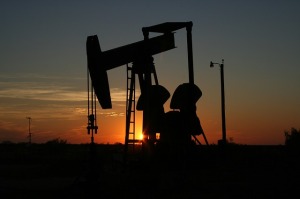That Wonderful Liquid We Call Oil
By the end of the 19th century, that wonderful concoction that we now call petroleum oil became one of the most desirable liquids in the planet. Now, in the 21st century, oil remains a desirable asset due to the wide variety of products that require it, ranging from gasoline to asphalt and plastics. On a global scale, we consume as much as 89 million barrels of oil per day, making it such an important commodity that changes in its price per barrel shake the economy of the entire world, especially in countries that depend on oil exports. Latin America, containing many of the world’s largest deposits of oil, is no different. In fact, Latin American oil is not just a fuel; it’s an economic tool, a political weapon and a source of risk.
The Latin American country most closely associated with oil is Venezuela. Venezuela has the largest natural oil reserve in the world, its crippling dependence on oil comes as no surprise. Venezuela is one of the founding members of the Organization of Petroleum Exporting Countries, or OPEC, along with other countries such as Saudi Arabia and Kuwait. Oil has brought innumerable riches to the country, turning this once rural economy into one of the most developed nations in Latin America in the 1980s . That said, oil has also largely contributed to Venezuela’s current economic crisis, revealing the double-edged nature of petrol’s benefits.
Recently, the price of oil per barrel has fallen steadily, jeopardizing many of the world’s economies—including Venezuela’s. The nation is already facing economic woes of its own, with extremely high inflation and massive foreign debt, putting the country at the risk of default. However, the Venezuelan government is confident that their oil production will be able to sustain them. On September 23 of this year, President Nicolas Maduro announced that he would not sell Citgo, the huge Venezuelan refining subsidiary in the US, in a deal estimated to bring the country $10 billion. Maduro instead plans to strengthen the company, yet it is unclear how he plans to do so while still pursuing a campaign to alleviate poverty and raise popular support.
Maduro has also used the recent drop in oil prices to push his political agenda forward. Always the anti-imperialist, Maduro has blamed the United States for the recent drop in oil prices and for the remaining variety of economic woes that challange country. As he pushes the US away, Maduro hopes to get closer to Caribbean countries through the Petrocaribe programme, in which Venezuela provides members with cheap oil in exchange for diplomatic favors. Maduro has successfully improved his diplomatic traction in organizations like the OAS, but at a high cost. The Petrocaribe program accounts for as much as $2.3 billion lost income per year, a significant sum for a country facing financial crisis.
Venezuela is not the only Latin American Country affected by the recent drop in oil prices. Mexico, the third largest producer of oil in the Americas, is also suffering the price shock. Around 30% of the country’s revenues come from oil production, so the decreased price of oil per barrel could bring the country an estimated loss of $1 billion in revenue. Brazil, another Latin American oil giant, is also facing risks, as its planned $221 billion investment in offshore drilling was contingent on the price per barrel of oil remaining above $100.
Oil not only shakes Latin America from the inside, but also from the outside. China in particular is investing heavily in the region by funding oil companies and proving government loans in exchange for oil sales. Chinese investors are even interested in by building a canal in Nicaragua, China’s President Xi Jinping has been meeting with several Latin American leaders, and has increased economic relations between the Asian giant and Latin America. On July of this year, China agreed to an oil deal with Venezuela, promising $4 billion in credit line in return for Venezuelan crude oil. Mr. Xinping also made similar deal for $11 billion with Argentine President Cristina Fernandez de Kirchner., China has even carried out substantial investment in the Brazilian energy sector.
The steady decrease in price of oil has certainly shaken Latin America as well as the rest of the world. We may think that world controls oil, however there is no doubt that this wonderful liquid is so deeply entrenched in our economic and political systems that it is oil that controls the world.

